Small Reservoirs Toolkit
Small multi-purpose reservoirs are a widely used form of infrastructure for the provision of water. They supply water for domestic use, livestock watering, small scale irrigation, and other beneficial uses. Although clusters of reservoirs store significant quantities of water and effect on downstream flows, they have rarely been considered as systems, with synergies and tradeoffs resulting from their numbers and their density.
Often reservoirs were constructed in a series of projects funded by different agencies, at different times, with little or no coordination among the implementing partners. That a significant number are functioning sub-optimally and/or are falling into disrepair indicates that there is room for improvement in the planning, management, operation, and maintenance of small reservoirs.
Contents
Background
This first version of the Small Reservoirs Toolkit was produced by the Small Reservoirs Project. In 2005 the project began with two paired objectives. The basin/watershed level objective is to promote and support the planning, development, and management of small reservoir ensembles. The local/community level objective is to support use of small multi-purpose reservoirs that are properly located, well designed, well maintained and operated to improve the livelihoods of the local residents. A multi-disciplinary team was assembled to develop a set of tools based on socio-economic and biophysical research. The hydrologic, economic, ecological, health, and institutional dimensions of small reservoirs were considered. By harmonizing the interests of individuals served by small multi-purpose reservoirs and other people living in the basin we will come closer to our paired goals: 1) to maintain water related ecosystem services, the long-term sustainability of local water supplies, and adequate downstream flows as we make use of small reservoirs and 2) to improve food security and increase sustainable livelihoods through the use of those small multi-purpose reservoirs.
The Toolkit
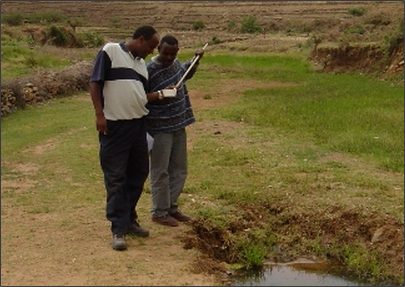
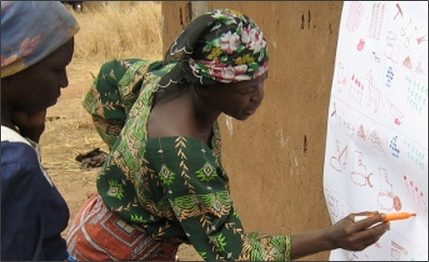
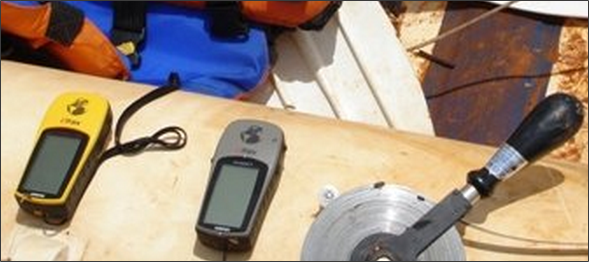

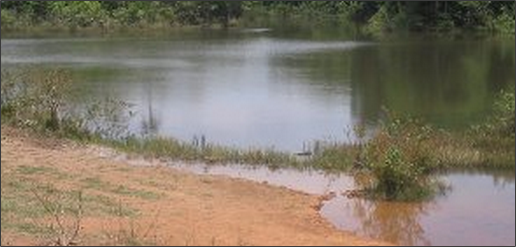
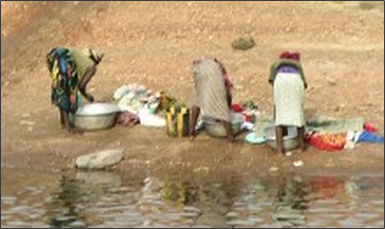
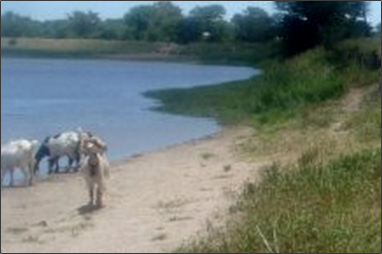
This toolkit is intended for the use of NGOs, research institutes, universities, donor agencies, multilateral organizations, and government agencies. These tools are not meant to replace other methods of collecting, storing, and presenting knowledge. Information in journal articles, dissertations, theses, and other literature is often difficult to find and is seldom written for use by practitioners. The purpose of the tools is to make information more accessible and more useful to practitioners. In the tools, references are made to the original documents. And it is expected that the reader will refer to and make use of the original documents where necessary.
Some of these tools are simple and applying them requires nothing more than the desire to try something new, and the drive to ‘get out and do it’. Undertaking them effectively requires, sometimes advanced, facilitation and communication skills. Here, we have aimed to provide comprehensive accounts of how to apply such techniques, with a focus on the requirements of potential facilitators. Some of the tools are more complex, and call for significant resources if they are to be used effectively. Here, we have attempted to provide an introduction and orientation to the topic at hand, as well as an introduction to resources that might prove useful to the reader The aim of this toolkit is to present entry points and references to the wide ranged topic of ‘Small Reservoirs’ and related research. This toolkit is a starting point. Other researchers will make additional contributions as part of the on-going process of expanding our knowledge of small reservoirs. References and contact persons are listed at the end of each tool.
There are approximately 30 tools and techniques presented in four topic areas:
- Intervention Planning:
- - Participatory Impact Pathways Analysis
- - Stakeholder and Conflict Analysis
- - Understanding each other: Creating Common Ground for Dialogue
- - Monitoring Change and Adoption – Outcome Mapping
- Storage and Hydrology:
- a. Reservoir ensembles measurements
- - Reservoirs Inventory Mapping
- - Towards an Atlas of Lakes and Reservoirs in Burkina Faso
- - Small Reservoir Capacity Estimation - Measuring storage - Developing Area Volume relations
- - Near-Real-Time Monitoring of Small Reservoirs with Remote Sensing
- - Hydrological Impact Assessment of Ensembles of Small Reservoirs
- b. Hydrology and physical measures of performance
- - Calibration of Runoff Models with Remotely Sensed Small Reservoir
- - Rainfall-discharge Relationships for Monsoonal Climates
- - Deep Seepage Assessment in Small Reservoirs
- - Evaporation Losses from Small Reservoirs
- - Water Quantity Assessment of Silted Up Small Reservoirs
- - 137Cs Radionuclide Tracer Method to Quantify Soil Erosion and Sedimentation at Hillslope and Reservoir Scale
- - Soil Erosion Modeling at Small Reservoir Scale by WaTEM/SEDEM
- - Bathymetric Survey by Depth-sonar and Lake Sediment Coring by Beeker Sampler to Identify Sediment Budges and Siltation Rates of Small Reservoirs
- Ecosystems and Health:
- - Participatory Health Impact Assessment
- - Health Questionnaires
- - Epidemiological Survey
- - Vector Studies
- - Water Quality Assessment
- - Cyanobacteria, cyanotoxins and potential health hazards in tropical small reservoirs
- - Agricultural Intensification and Ecological Threats around Small Reservoirs
- - Small Reservoirs Water Quality Monitoring using Plankton Abundance and Diversity
- - Indicators
- - Environmental Flows in Small Reservoir Systems
- - Fisheries
- Institutions and Economics:
- a. Water Allocation
- - Water Evaluation and Planning (WEAP) (incl. PEST – Parameter Estimation Tool)
- - Financial Accounting Model
- - Water-Limited Yield Model
- - Small Reservoir Water Allocation Strategy Water Productivity Based Water Allocation
- b. Institutions and Governance
- - Institutions and Governance of Small Reservoir Water Resources
- - Net-Map (Influence Network Mapping)
- - Social Capital
- - Rural Livelihoods and Access to Resources in Relation to Small Reservoirs: A Description of Tools Used - in Brazil’s Preto River Basin
Download more than 30 toolkit PDFs
Acknowledgements
- This is a project of the Challenge Program for Water and Food, sponsored by the German Technical Cooperation (Gesellschaft fuer Technische Zusammenarbeit, GTZ), led by the International Water Management Institute (IWMI) with six partners: Empresa Brasileira de Pesquisa Agropecuaria (Embrapa), L’Institute de recherché pour le development (IRD), Stockholm Environment Institution (SEI), Delft University of Technology (TUD), University of Zimbabwe (UZ), Ghana Water Research Institution (WRI).
- Small Reservoirs Project, Small Reservoirs Toolkit - Edited by Marc Andreini, Tonya Schuetz, and Larry Harrington.
